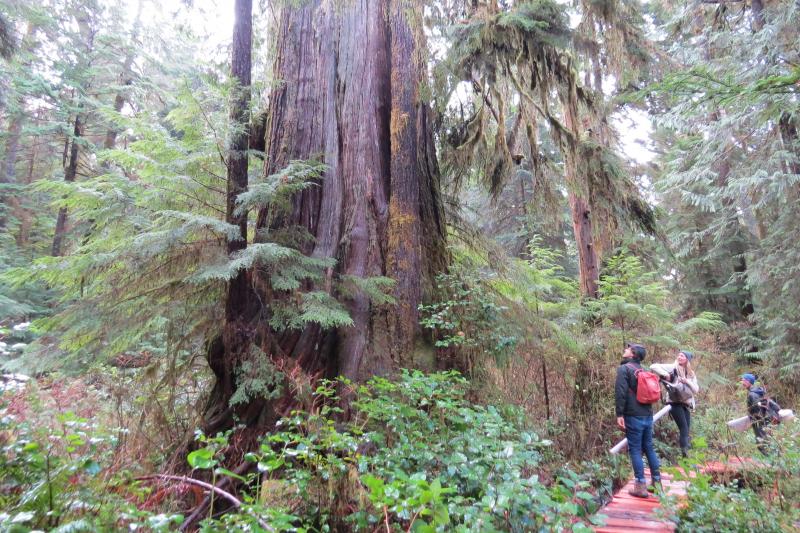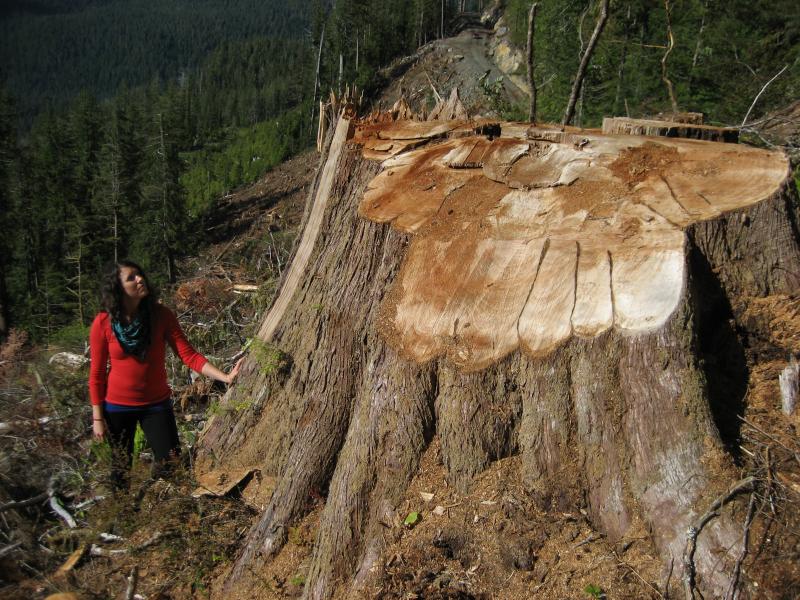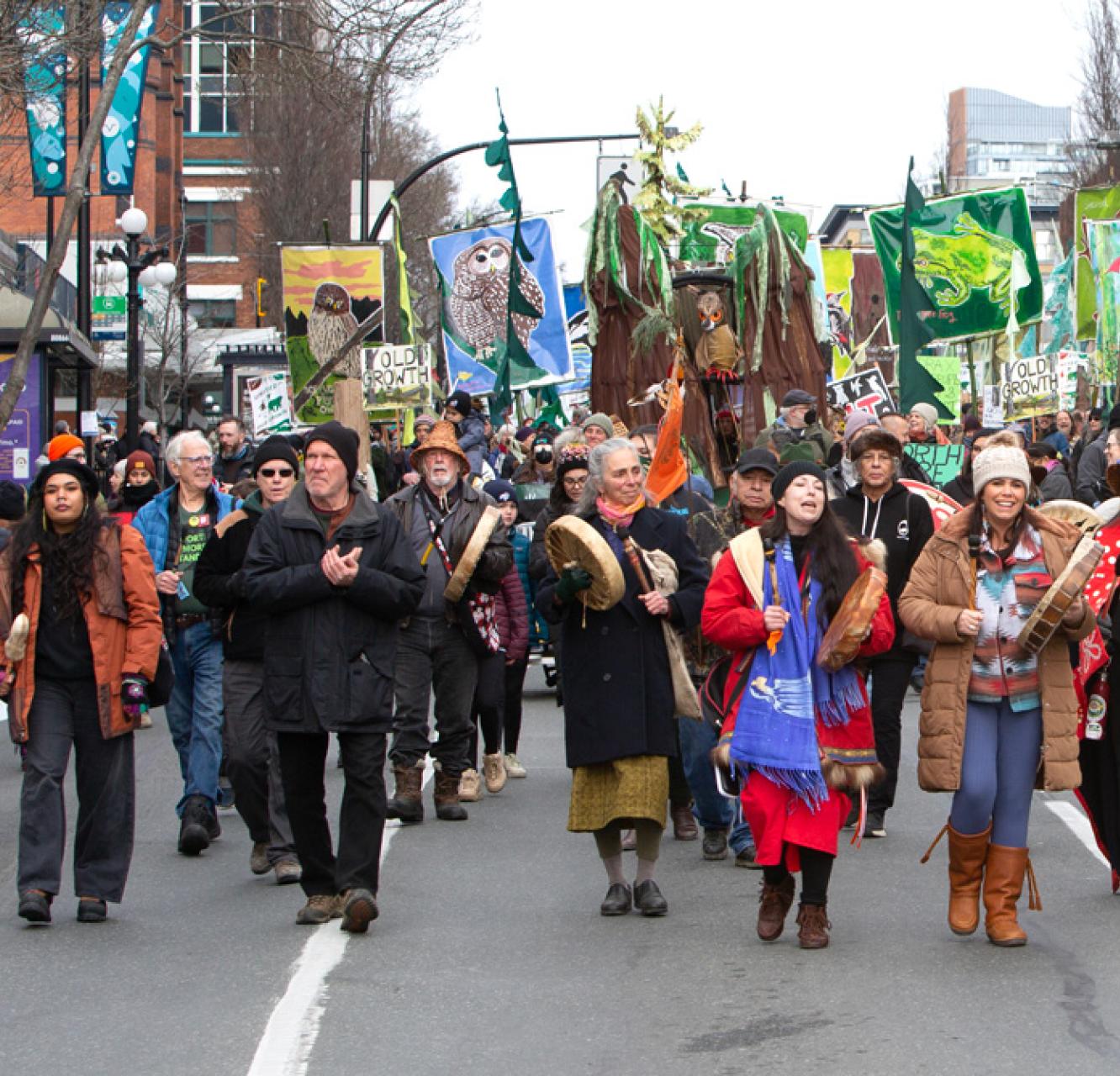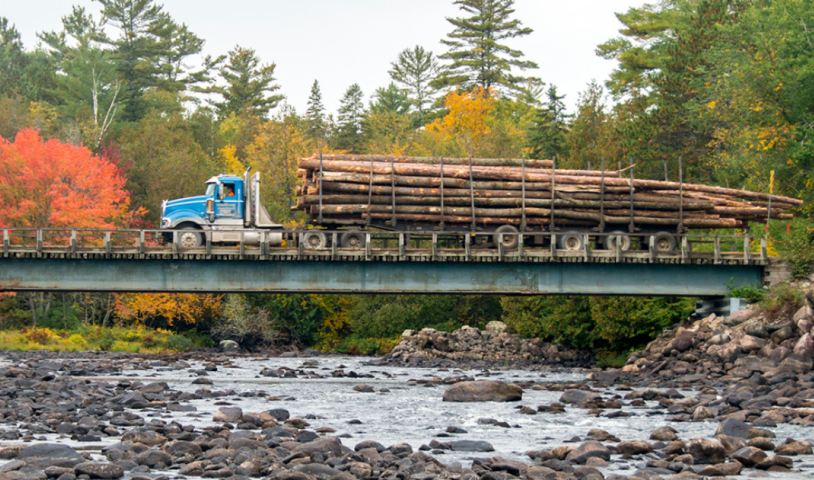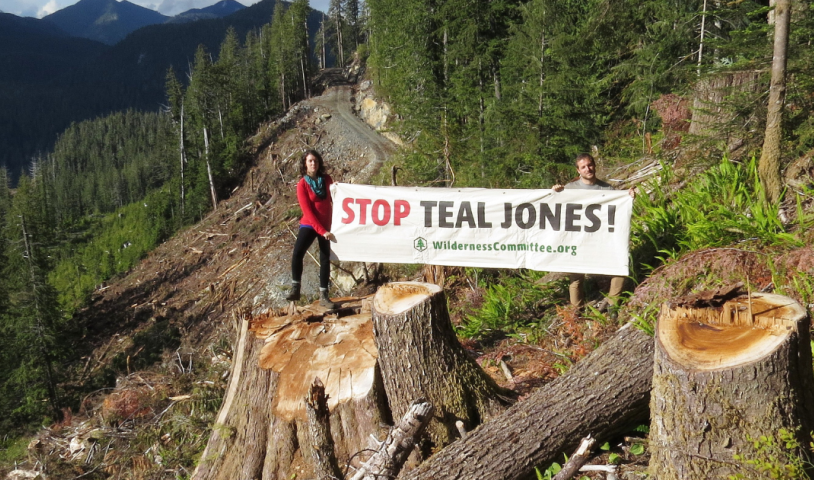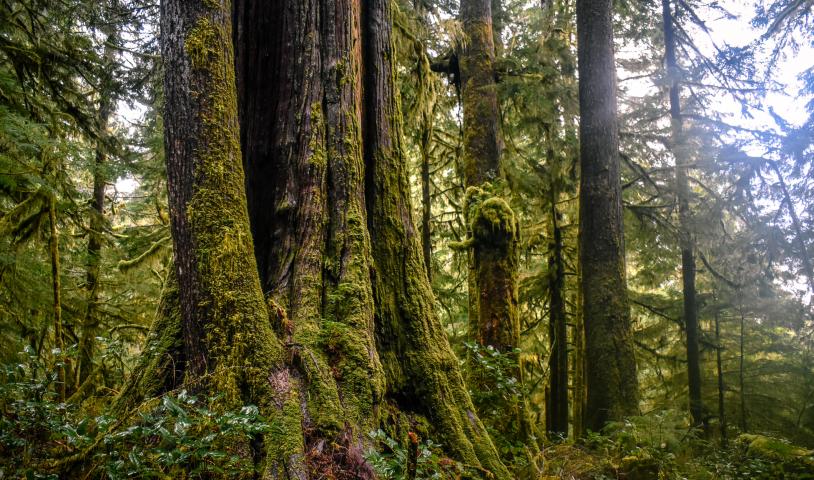Hammering out our differences: reflections on our state of the rainforest tour
Wednesday, March 29, 2017By Torrance Coste
Last Tuesday, a woodlot operator from northern Vancouver Island challenged my colleagues and I at a public meeting we hosted in Campbell River. He disagreed with a lot of our viewpoints, and he let us know before, during, and after our presentation.
Three nights later in Courtenay, he showed up again.
These meetings were the second and fourth stops of our State of the Rainforest discussion series that we organized with our friends at Sierra Club BC.
Our goal was to talk about the ecological and economic impacts of forestry, with particular focus on old-growth logging and raw log exports. We wanted to take these messages on the road and generate discussion outside of the communities we usually work in. We wanted to hear from people working in forestry, and especially from folks who didn’t necessarily share our views.
That’s exactly what we got.
Our organizations believe in ending old-growth logging and raw log exports on Vancouver Island, but doing so in a way that doesn’t further harm the families and communities already hurt by the decline of this sector.
The latter half of this message hasn’t been articulated clearly enough in the past, and this was a main reason for our tour.
At every meeting, people working as fallers and foresters and truck drivers expressed concern that a ban on old-growth logging or a requirement for Island logs to go to coastal mills would cause too big a drop in cutting and put them out of work.
At a few of the meetings, upper level managers with logging corporations were present where some quietly took notes, and while others directly challenged us. We heard from municipal councillors, and we heard from candidates in the upcoming provincial election, who carefully appealed to both sides of the argument.
We learned an immeasurable amount and will continue to reflect on these lessons in the days ahead.
Fierce disagreement occasionally dissolved after a clarification of terms. To me, old-growth means original forest that has never been industrially logged. However for others, old-growth can be “recruited” from second-growth, and is therefore viewed as replaceable.
In all the packed-house meetings, the fact that logging of original forests will end in another decade or two was never denied. The disagreements stemmed on how best to manage the little that remains.
When it came to raw log exports, the attitude is deeply entrenched that if companies can’t export some of the trees they cut, then job losses would be even greater. Calls for limits on raw log exports are seen as attacks.
The conversation we hope to have is about how to create a forest industry in which the value-added sector isn’t shrinking and jobs in the forest aren’t all that we can hope for.
We want an industry where the number of jobs per tree harvested is prioritized above everything else. Where the profits of corporations don’t trump the health of ecosystems or the right of citizens to find work in their communities.
Where it’s unacceptable that two of the biggest logging companies on the Island don’t operate a single mill between them. Where Indigenous Nations are given the final say in what happens in their territories. Where we protect the remaining old-growth rainforests and give the second growth more time to bounce back.
This is a system-change level conversation, and before it can happen, those of us who have opposing views about these ancient forests need to meet, talk and start to find common ground.
The first two things happened last week, and I believe that groundwork was laid for the third.
This is intense work, and I’m proud to be with an organization that prioritizes it, and I hope to continue to dedicate my time and energy to this end.
Conversations about change in industries where people derive their livelihoods are charged with emotion. As the son of a former commercial fisherman, I get this. The discussions we had were sometimes emotional and tense, but almost always respectful, and I’m grateful for every single person who came out and engaged with us.
The woodlot operator who attended two meetings was the last person to leave on the final stop of the tour in Courtenay. He helped us carry some of our equipment out to the car, and chatted with us for another ten minutes on the sidewalk. For a few minutes, we set aside the points we disagreed on and focused on common ground: namely the mismanagement of forests by the provincial government.
If we can continue to meet like this and have these conversations with folks we don’t always agree with, I know we can find a way to protect ecosystems and rebuild the forest industry into something truly sustainable.
